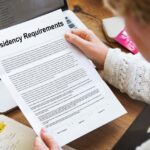Filing for a no-fault divorce in New York can be a complex process, but with the right knowledge and preparation, it can be done successfully. Here is a step-by-step guide on how to file for a no-fault divorce in New York:
No-fault Divorce In New York
Meet the Residency Requirements
Before you can file for a no-fault divorce in New York, you must meet the state’s residency requirements. This means that either you or your spouse must have been a resident of the state for at least one year before filing for divorce. If you do not meet the residency requirements, you will not be able to file for divorce in New York.
Choose the Right Grounds for Divorce
New York is a no-fault divorce state, which means that either spouse can obtain a divorce without having to prove that the other spouse did something wrong. In order to file for a no-fault divorce in New York, one of the following grounds must be met:
- The marriage has irretrievably broken down for a period of at least six months, as evidenced by the fact that the husband and wife have lived separately and apart for that period without cohabitation.
- The couple has been living apart for more than one year under a separation agreement.
File the Divorce Papers
Once you have chosen the grounds for your divorce and met the residency requirements, you can file the divorce papers with the court. You will need to fill out several forms, including a summons, a complaint for divorce, and an affidavit of service. You will also need to pay a filing fee, which can vary depending on your county.
Serve the Papers
After you have filed the divorce papers, you will need to serve them on your spouse. This means that you will need to have a copy of the papers delivered to your spouse by a third party, such as a process server or a sheriff. Your spouse will then have the opportunity to respond to the divorce papers, and if they do not respond within the time frame set by the court, a default judgment may be entered.
Wait for the Waiting Period
After the papers have been served, there is a waiting period of at least 120 days before the divorce can be finalized. This waiting period is intended to give the couple a chance to reconcile, but if they are unable to do so, the divorce will proceed.
Attend the Hearing
If your spouse responds to the divorce papers, a hearing will be scheduled in which both parties will have the opportunity to present evidence and argue their case. During the hearing, the judge will consider factors such as the grounds for divorce, the couple’s assets and debts, and the best interests of any children involved.
Finalize the Divorce
After the hearing, the judge will issue a final order of divorce, which will include the terms of the divorce such as property division, spousal support, and child custody and support. Once the final order of divorce is entered, the divorce is considered final and the couple is legally divorced.
It’s worth noting that this is a general guide to the process of filing for no-fault divorce in New York, and the specific requirements and procedures can vary depending on the specific case and the county where the case is being heard. Additionally, the process can be complex and emotionally taxing and it’s highly recommended to consult with a divorce attorney to fully understand the requirements and the process of no-fault divorce in New York, as well as to get legal guidance and representation in the court. It is also best to read more on No-fault and fault-based law in New York before you start any process.

How To Find The Best No-fault Divorce Lawyer In New York
Finding the right no-fault divorce lawyer in New York can be a daunting task, but it is crucial to ensuring a successful outcome for your case. Here are some steps you can take to find the best no-fault divorce lawyer for your needs:
Research Potential Lawyers
The first step in finding a good no-fault divorce lawyer is to research potential lawyers. You can start by asking friends, family, or colleagues if they know of any lawyers who specialize in a no-fault divorce. You can also look for lawyers online or through the New York State Bar Association’s lawyer referral service.
Check the Credentials
Once you have a list of potential lawyers, it is important to check their credentials. Look for lawyers who have experience handling no-fault divorce cases and who are in good standing with the New York State Bar Association. You can also check to see if the lawyer has any disciplinary actions against them or if they have any areas of specialty.
Schedule Consultations
After you have narrowed down your list of potential lawyers, schedule consultations with each one. During the consultation, ask the lawyer about their experience with no-fault divorce cases, their approach to handling such cases, and their fees. You can also ask about the lawyer’s communication and availability, as well as their willingness to work with your specific needs and concerns.
Evaluate Your Options
After you have completed consultations with several lawyers, take the time to evaluate your options. Consider factors such as the lawyer’s experience, communication style, and fees. Also, think about how comfortable you feel working with the lawyer and if they seem to understand your needs and concerns.
Make a Decision
Once you have evaluated your options, make a decision on which lawyer you want to hire. It is important to choose a lawyer who you feel comfortable working with and who has the experience and credentials to handle your no-fault divorce case successfully.
When looking for the best no-fault divorce lawyer in New York, it is also important to keep in mind that the best lawyer for one person may not be the best for another. Therefore, it is important to carefully evaluate your options and choose a lawyer who you feel comfortable working with and who has the experience and credentials to handle your no-fault divorce case successfully.
It’s also important to keep in mind that the best no-fault divorce lawyer for you is not always the most expensive or the one with the most experience. A lawyer with a good reputation and a lot of experience can be a great option, but a newer or less experienced lawyer may also be able to provide excellent service







